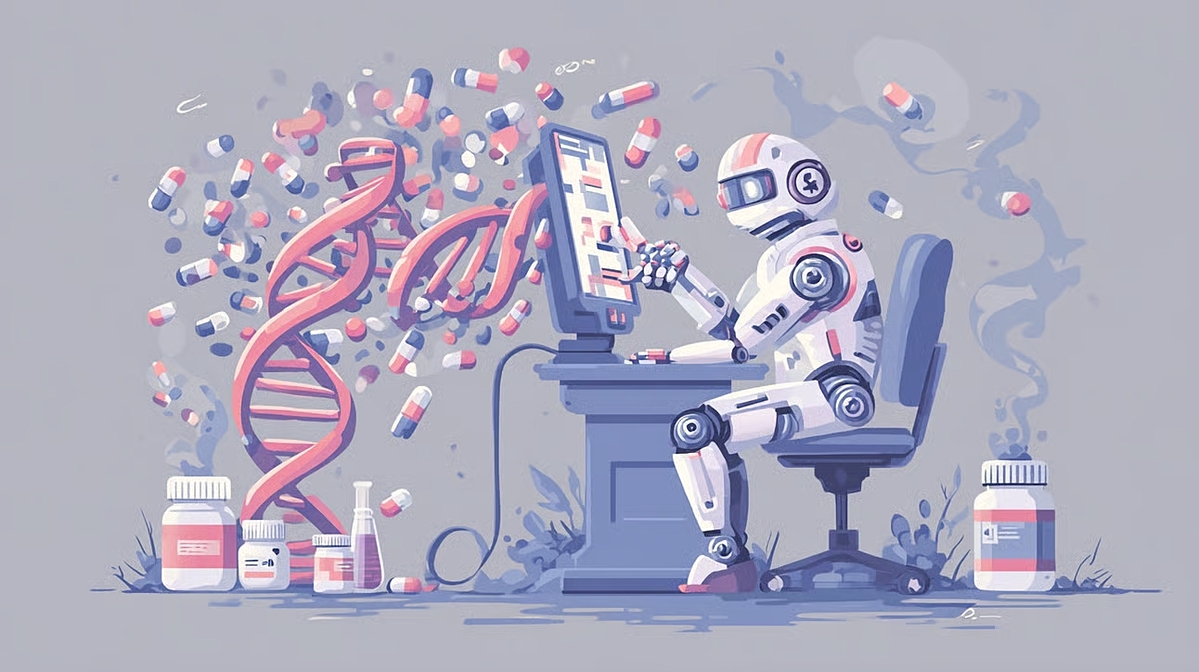This marks the first time advanced AI applications in drug development have reached the human trial phase.
Colin Murdoch, president of Isomorphic Labs and chief business officer of Google DeepMind, confirmed the company is "preparing personnel" to administer AI-designed drugs to the first patients.
"The next major milestone is large-scale clinical trials, beginning to put these drugs into humans," Murdoch said.
Traditionally, discovering and developing a new drug has been a "marathon," often taking 10 to 15 years and costing billions of USD. The process involves numerous complex and meticulous stages, relying heavily on trial and error to determine a safe and effective drug with optimal dosage.
AI, particularly machine learning and deep learning, has revolutionized the process by automating, accelerating, and improving the accuracy of various stages in drug discovery. With AI, the timeline can be reduced from years to months, or even weeks.
Previously, Insilico Medicine used AI to discover a new drug molecule with the potential to treat idiopathic pulmonary fibrosis. The process, from target identification to drug molecule design, took only 46 days, significantly faster than the traditional method, which can take years. AI enabled the creation of thousands of potential molecular structures in a short time, followed by screening and selection of the most promising candidates for synthesis and laboratory testing.
 |
Experts believe using AI to design drugs can save time and costs. Photo: Run Down |
Experts believe using AI to design drugs can save time and costs. Photo: Run Down
Spun off from Google DeepMind in 2021, Isomorphic Labs leverages AlphaFold technology, an AI system capable of predicting protein structures with high accuracy. The latest version, AlphaFold 3, can simulate the interaction between proteins and DNA or drug molecules, further accelerating the drug design process.
Murdoch stated that researchers at the King’s Cross headquarters in London are "sitting down and working with AI to design cancer treatments." The company is currently focused on designing internal drug candidates in the fields of oncology and immunology, aiming to apply for licensing after early-stage trials.
According to the World Health Organization (WHO), in 2022, the world recorded approximately 20 million new cancer cases and 9.7 million cancer deaths. The use of AI in drug design promises to save time and costs, while increasing the success rate. Murdoch envisions a future where "we can one day just push a button and the drug design will appear in front of our eyes."
In 2024, Isomorphic Labs signed research partnerships with two pharmaceutical giants, Novartis and Eli Lilly. By 4/2025, the company had raised 600 million USD in its first funding round, led by Thrive Capital. Demis Hassabis, CEO of both Isomorphic Labs and Google DeepMind, emphasized, "This funding will help us take our programs into the clinic, bringing us closer to our mission of using AI to solve all of the diseases of the future."
The trend of using AI in drug design is booming globally. GlobalData estimates that there are currently over 3,000 drugs that have been developed or repurposed with the help of AI, although most are still in early stages and require human testing.
In this context, Isomorphic Labs emerges as one of the pioneers in bringing AI into clinical practice, paving the way for new advancements in modern medicine.
Experts believe that digital transformation and new technologies, including AI, can significantly or moderately reduce drug development time. This is crucial as the healthcare industry faces challenges ranging from disease mutations to increasing treatment demands.
Thuc Linh (Fortune)












